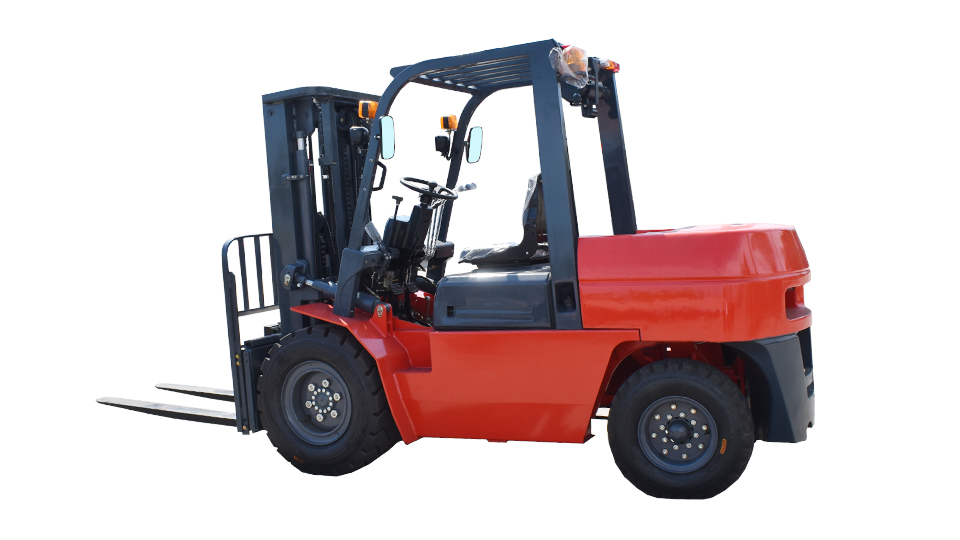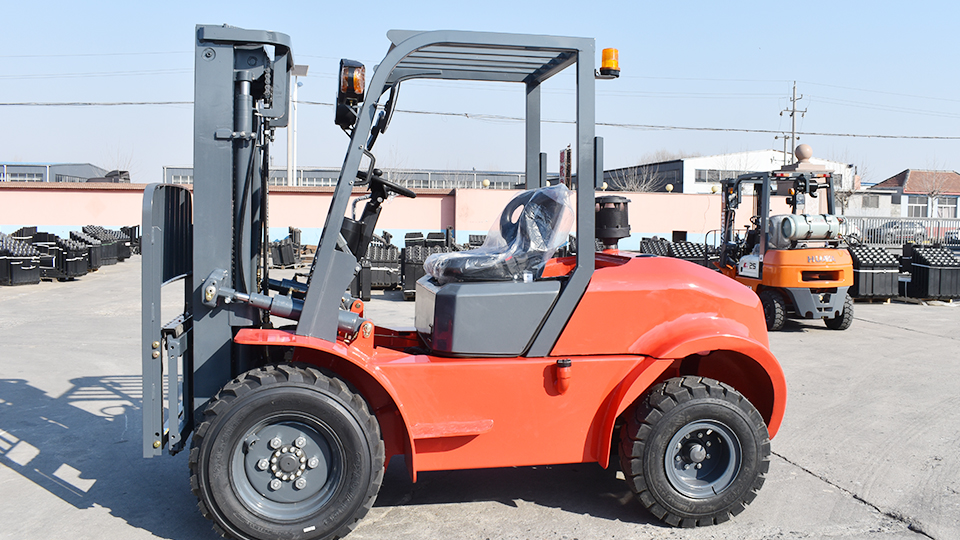
Introduction
In the bustling world of industrial and commercial operations, forklifts are the unsung heroes. These powerful machines are the workhorses of warehouses, construction sites, and logistics hubs, enabling the efficient movement of goods and materials. As a result, a vibrant market exists for both new and used forklifts. Whether you're a seasoned equipment dealer, a business owner looking to upgrade, or an individual selling a single machine, a fundamental question arises: "Do we need paperwork to sell a forklift?"
The Legal Framework: A Multifaceted Landscape
The need for paperwork when selling a forklift is not a one-size-fits-all situation. It is dictated by a combination of legal frameworks, including:
State and Local Regulations: Unlike passenger vehicles, which are subject to a uniform system of titling and registration, forklifts often fall into a regulatory gray area. In many jurisdictions, forklifts are considered "off-road" or "non-highway" vehicles and are not required to be registered with the Department of Motor Vehicles (DMV). However, this does not mean they are exempt from all documentation. The laws can vary significantly from state to state, and even from county to county. For example, some states may have specific regulations concerning the sale of industrial equipment, while others may not. It is essential to consult local and state statutes to understand the specific requirements in your area.

Federal Regulations: While the federal government does not directly mandate a title or registration process for forklifts, various federal agencies have a vested interest in their operation and safety. The Occupational Safety and Health Administration (OSHA), for instance, sets forth stringent safety standards for forklift operation and maintenance. While these regulations primarily apply to the end-user, they indirectly influence the sales process. A seller who provides a well-maintained and documented machine, complete with maintenance records and safety certifications, is offering a more valuable and legally sound product.
Lien and Financing Laws: A significant portion of the forklift market involves financed equipment. If the forklift being sold is under a loan or lease agreement, the original lender has a lien on the asset. The Uniform Commercial Code (UCC), a set of laws governing commercial transactions, is crucial here. The seller must legally satisfy the lien before a clear title can be transferred to the buyer. This often requires a formal payoff process and the release of the lien, which is a legally binding document.
The Essential Paperwork: A Breakdown
While the exact requirements can vary, a successful and legally compliant forklift sale typically involves a core set of documents. These documents serve to protect all parties, establish a clear chain of ownership, and mitigate potential legal and financial risks.
1. Bill of Sale
This is arguably the most critical piece of paperwork in any forklift transaction. The Bill of Sale is a legally binding document that serves as proof of the transfer of ownership from the seller to the buyer. It should include, at a minimum, the following information:
Seller and Buyer Information: Full legal names, addresses, and contact information for both parties.
Forklift Description: A detailed description of the forklift, including the make, model, serial number, year of manufacture, and any distinguishing features. The serial number is particularly important as it is the unique identifier for the machine.
Purchase Price: The agreed-upon selling price, and the method of payment (e.g., cashier's check, wire transfer).
Date of Sale: The exact date the transaction took place.
As-Is Clause: It is highly recommended that a Bill of Sale for a used forklift include an "as-is" clause. This clause states that the buyer is accepting the machine in its current condition, with no warranties or guarantees from the seller. This protects the seller from future claims regarding the machine's condition or performance.
Signatures: The legal signatures of both the seller and the buyer.
2. Proof of Ownership and Lien Release
Before a seller can legally transfer ownership, they must prove they have the right to do so. This is especially important for financed equipment. Proof of ownership can be demonstrated through various documents, including:
Original Bill of Sale: The document from when the current owner purchased the forklift.
Title/Registration (if applicable): In rare cases, a forklift may have a title or registration, which would serve as clear proof of ownership.
Lien Release Form: If the forklift was financed, a formal document from the lender confirming that the loan has been paid in full and the lien has been released is essential. Without this, the buyer could inherit the previous owner's debt.
3. Maintenance and Service Records
While not legally required in most cases, providing a complete history of maintenance and service records is a powerful tool for building trust and adding value to the sale. These records can include:
Routine Maintenance Logs: Oil changes, fluid checks, and filter replacements.
Major Repair Invoices: Documentation of any significant repairs or part replacements.
Safety Inspections: Records of regular safety inspections, including battery health checks for electric forklifts, and propane system checks for gas-powered models.
These records demonstrate that the forklift has been well-cared for, and they can provide the buyer with a valuable baseline for future maintenance.
4. Operator's Manual and Safety Documentation
The seller should provide the buyer with the forklift's operator's manual, if available. This document contains critical information on the machine's operation, maintenance, and safety features. Additionally, any existing safety placards, warnings, or decals on the machine should be in good condition and legible. Providing this documentation is not only a good business practice but also helps the buyer comply with OSHA regulations, which mandate that operators have access to this information.
The Pitfalls of Neglecting Paperwork
The temptation to skip the paperwork in a seemingly simple transaction, especially in a private sale, can be strong. However, doing so exposes both the buyer and seller to significant risks and potential legal headaches.

For the Seller:
Liability Issues: Without a clear Bill of Sale, the seller could be held liable for any accidents or injuries that occur with the forklift after the sale. The "as-is" clause in a well-drafted Bill of Sale is a critical defense against such claims.
Financial Disputes: A lack of a written agreement on the purchase price and payment terms can lead to disputes. If the payment is not made in full or if a check bounces, the seller has little legal recourse without a formal document.
Lien-Related Problems: If the seller fails to pay off a lien on the forklift, the lender can legally repossess the machine from the new owner. The new owner would then have a strong legal claim against the seller, potentially leading to a lawsuit.
For the Buyer:
Unclear Title: Without a Bill of Sale and proof of ownership, the buyer has no legal proof that they are the rightful owner of the forklift. This could become a major issue if they ever need to sell the machine or if the previous owner tries to reclaim it.
Inherited Debt: Purchasing a forklift without ensuring that all liens have been released means the buyer could unknowingly be responsible for the previous owner's debt. The lender can legally seize the asset to satisfy the outstanding loan.
Safety and Maintenance Concerns: Without maintenance records, the buyer is purchasing a machine with an unknown history. The forklift could have hidden mechanical issues or be in need of costly repairs, which they would have no way of knowing without the documentation.
Special Considerations: The Role of a Dealer
The process of selling a forklift is often different when a commercial dealer is involved. Dealers, as professional entities, are bound by a higher standard of care and legal responsibility.
Used Equipment Certification: Many reputable dealers offer certified used forklifts. This means the machine has undergone a thorough inspection and reconditioning process and comes with a limited warranty. This certification process is heavily documented, providing the buyer with a detailed report on the machine's condition and the work that has been performed.
Financing and Title Services: Dealers are well-versed in the complexities of financing and lien releases. They handle all the necessary paperwork, ensuring a smooth and legally compliant transfer of ownership, especially when financing is involved.
Legal Compliance: A dealer's business model is predicated on adhering to all local, state, and federal laws. They are experts in the specific documentation required for forklift sales in their jurisdiction, providing a layer of security that a private seller may not be able to offer.
Conclusion
The question "Do we need paperwork to sell a forklift?" is unequivocally answered with a resounding "Yes." While the specific forms may differ from state to state and from a private sale to a dealer transaction, the core principle remains the same: a formal, well-documented process is essential for a successful and legally sound transaction.
The paperwork, including a detailed Bill of Sale, proof of ownership, and a lien release (if applicable), is not merely a bureaucratic hurdle. It is the bedrock of a fair and transparent exchange. For the seller, it is the primary defense against future liability and financial disputes. For the buyer, it is the guarantee of a clear title and a full understanding of the asset they are acquiring.
In an industry where safety, reliability, and clear ownership are paramount, neglecting the paperwork is a gamble with high stakes. By following the best practices outlined in this article, both sellers and buyers can navigate the forklift market with confidence, ensuring a transaction that is not only successful but also legally compliant and risk-free. The time and effort invested in proper documentation are a small price to pay for the peace of mind and legal protection it provides.
Name: selena
Mobile:+86-13176910558
Tel:+86-0535-2090977
Whatsapp:8613181602336
Email:vip@mingyuforklift.com
Add:Xiaqiu Town, Laizhou, Yantai City, Shandong Province, China